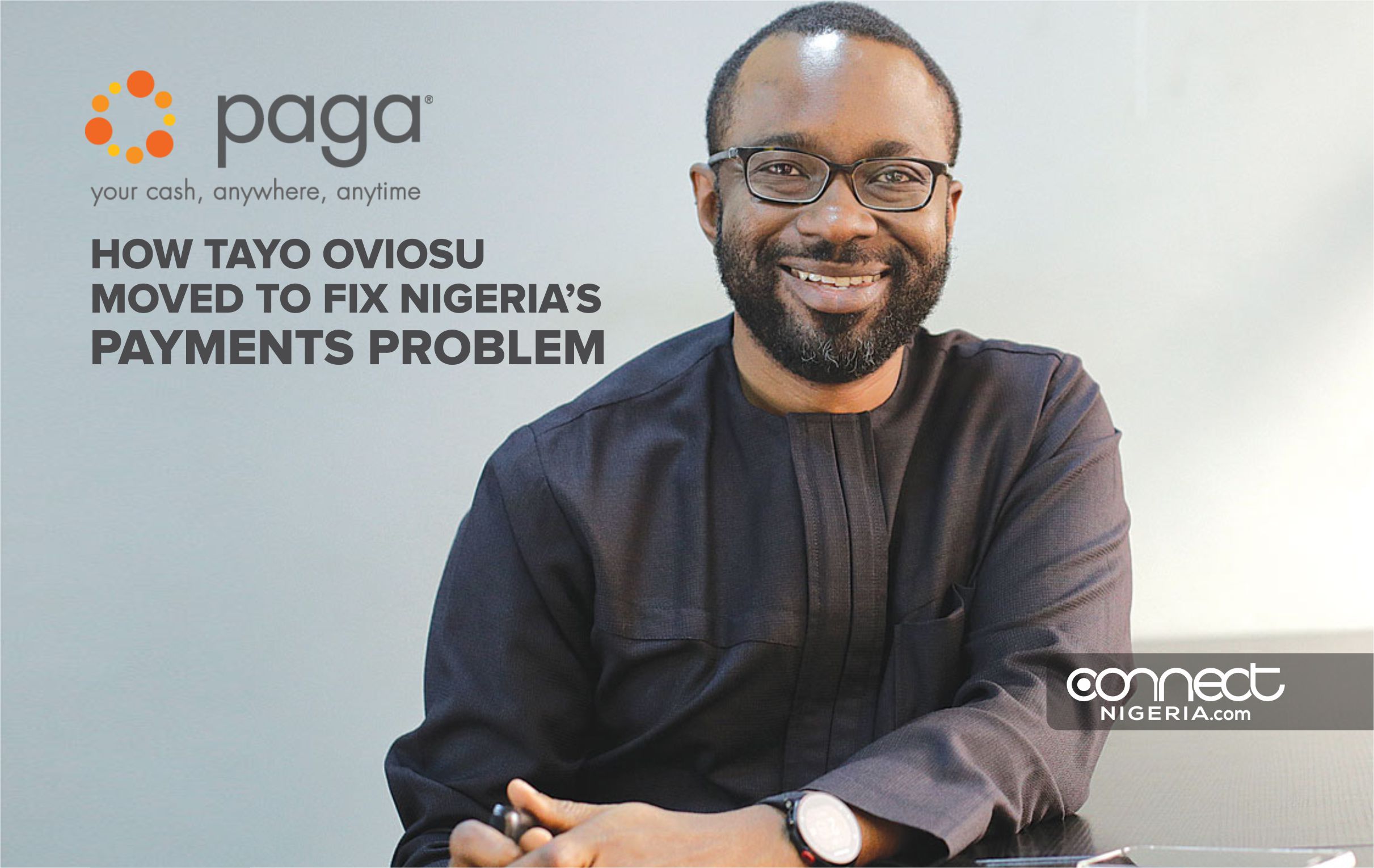Things appear to be looking up for Nigeria on its financial inclusion front. Fintech startups are thriving, the banks have rolled out their sleek and easy-to-use apps, and the vibes coming out of the financial sector about its future potentials seems to be sunny, if not cheerily expectant. Buoyed by the rapid growth of a younger population eager to embrace the convenience that modern technology offers, the financial system (for all its failings) seems to be on its way to catching up with the rest of the world in the ongoing evolution towards a cashless, tech-driven future. Only a decade ago, things were very different.
When Tayo Oviosu founded Paga in 2009, he was moving to solve a problem which, though still present, was far more widespread and crippling. According to him, he started the company out of frustration with the inefficiencies of the banking system, which had not succeeded in eliminating the necessity of carrying cash around with him. Worse still, he realized that a surprisingly large number of Nigerians had no bank accounts, and were therefore limited in their ability to carry out cash transactions over long distances.
Starting up
Official reports on financial access in Nigeria make for grim reading. According to the Central Bank of Nigeria’s Financial Inclusion Newsletter (published in May 2017), less than 40 percent of Nigeria’s adult population (i.e. those aged 18 and above) are banked. More than 40 million adults do not have any form of contact with the existing financial system.
Tayo saw the yawning supply gap in Nigeria’s financial system as an opportunity. He had no illusions about the difficulty of the terrain. Prior to hitting the startup patch, he had worked with such global giants as Cisco and Deloitte, and he had the skills to conjure up what was, in the first decade of this century, a novelty in the Nigerian sense. Challenging as the task was, he says he was driven to execute it by the vision of a future in which Nigerians didn’t have to rely on unevenly spread bank branches and ATMs. Tayo believed that Paga could lead the way for a transformative revolution in the Nigerian economy.
“If Nigeria is to be the economic juggernaut it really could be, you have to solve payments and make it easy for people to pay or get paid”, he said in an interview with DHL’s Delivered Magazine. “And it has to be easy for people to access finance.”
At the start, the question of how the new venture was going to be funded loomed largely. But, thankfully, Paga received support from some high profile investors including the notable American venture capitalist Tim Draper, and Nigerian private equity firm Alitheia Capital. In 2011, Paga got the nod from the CBN to launch out into the financial services space.
A multi-pronged approach
Today, Paga has over six million customers and serves thousands of businesses. Users of the platform are able to send and receive money, pay bills, buy or send airtime, and receive transfer payments from other countries. These services are accessible through Paga’s website and mobile apps, as well as numerous agent outlets located across Nigeria. Accounts can also be opened offline via a specified mobile code.
Earlier in 2017, a partnership between Paga and the Nigerian Postal Service (NIPOST) was announced. The collaboration would enable Paga to extend the reach of its mobile money agent network to include post offices in every Local Government Area in Nigeria.
Looking ahead: farther frontiers
Paga has come a long way since it was created nine years ago. It is now recognized as a leader in Nigeria’s developing Fintech sector. But Tayo isn’t resting on his laurels. He knows there is still much ground to conquer, and admits that Paga’s presence in rural communities is an aspect of its operations that has some room for improvement.
“There is a significant cost to going to serve rural areas, and that is not a major part of our strategy”, he told the Guardian Newspaper in April.
However, Tayo thinks that things will naturally move in the direction of further rural penetration, as more agents opt to set up centres in those areas- a trend which, he says, has already begun.


